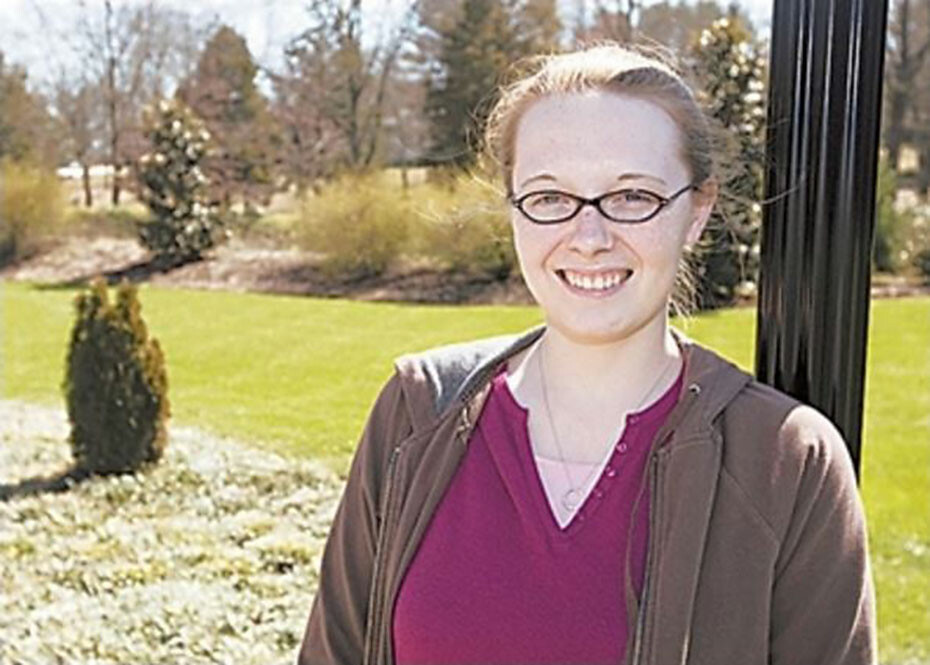SWU featured in AP story about impact of economic downturn on college students

Mar 25, 2008 | by Justin Pope | Student Life
Southern Wesleyan University student Hannah Bolt poses on campus in Central, SC. (AP Photo/Patrick Collard)
Excerpt of story from the Associated Press:
(Associated Press/JUSTIN POPE)
March 25, 2008 - 12:00 a.m. EST
CLEMSON — At the giant public university here, officials are bracing for likely state budget cuts. They hope fundraising can help make up any gap, so that students won't feel the brunt.
At the community college and at the small Christian college just outside town, commuting students have had to work extra hours to cover the surging cost of gas.
The national economic downturn is certainly felt in college towns like this one, home to three very different institutions within a few miles of each other and situated in a region still smarting from thousands of textile job losses.
As for job prospects for new graduates, the news is mixed. Last fall, a survey by the National Association of Colleges and Employers predicted campus hiring would be up 16 percent for the class of 2008. An updated survey last week revises that figure downward but still predicts an increase of about 8 percent more than the class of 2007.
For colleges themselves, an economic slump can be good for business, reminding people of the value of more education and pushing them to get it when other opportunities are scarce.
Colleges plan for the long haul, so many can take advantage of the effects of an economic slump, like lower construction costs and — if the current credit crunch passes — lower costs to borrow money.
In short, the economy on campus is a complicated story, best told from the point of view of some people in the midst of the forces at work.
Gas an education issue at SWU
On a break between classes, Hannah Bolt tries to get some work done in a campus coffee shop at Southern Wesleyan University, a small Christian college in the town of Central, a few minutes from Clemson.
Every minute is precious. She comes to campus four days a week, and often works the other three at a department store. Her parents have pushed her to pick a steady career, so she is studying to become a special-education teacher. Dad was a commercial fisherman and is battling health problems. Mom is a seamstress in the struggling textile industry.
"Some weeks she'll work three days, and they'll say, 'We don't have anything for you to do the rest of the week, take a four-day weekend,'" Bolt says.
There's no such thing as a typical student, here or anywhere else. But Bolt is representative in some respects. Like most students here and an estimated 57 percent nationwide, she has a job. She's also a commuter, as are the approximately four in five American college students who don't live on campus.
That's why to college students, the price of gasoline is an education issue. It used to cost Bolt $20 to fill up her Volkswagen Beetle once a week for the 26-mile trip from her home in Westminster to campus. Now it's $37 to $40.
Given her family's financial pinch, you might wonder what Bolt is doing at a private college like Wesleyan.
But financially, the hit isn't too bad. Wesleyan tuition and fees run about $17,000 per year, but about 90 percent of students get aid. With a state scholarship and $7,000 from Wesleyan, Bolt has only had to borrow $3,000 — and that should be paid off by a state teacher training program.
Chad Peters, the admissions director, acknowledges that private colleges like Wesleyan — with an endowment of just $3 million — can't always compete head-to-head with state schools on price. He also sees more students are applying to a range of schools, looking for the best deal.
But Wesleyan is holding its own. It's looking to enroll 300 freshmen next fall, the biggest increase in years.
Walking around campus, Bolt says she sees few signs that her fellow students have felt the latest economic downturn personally. But she does see signs of it at the department store where she works.
"A lot of people use credit cards," she says. "When I first started, there were a lot of checks. Now it's more often when they give you a debit card, you know they're going to choose credit."
Here are some media outlets publishing Southern Wesleyan University’s AP story: Aiken Standard
Anderson Independent-Mail
AOL
The Boston Globe
The Charlotte Observer
CNBC
The Coloradoan
Daily Herald (Chicago)
Education Week
El Paso Times
Forbes.com
Honolulu Advertiser
Houston Chronicle
Kiplinger.com
Leader-Herald (Johnstown, N.Y.)
NACAC
Oakland (Mich.) Press
Philadelphia Inquirer
Press-Enterprise (Riverside, Calif.)
Saratogian (N.Y.)
Savannah Morning News
The Spartanburg Herald-Journal
The State
The Washington Times
Worcester (Mass.) Telegram
Upstate Today